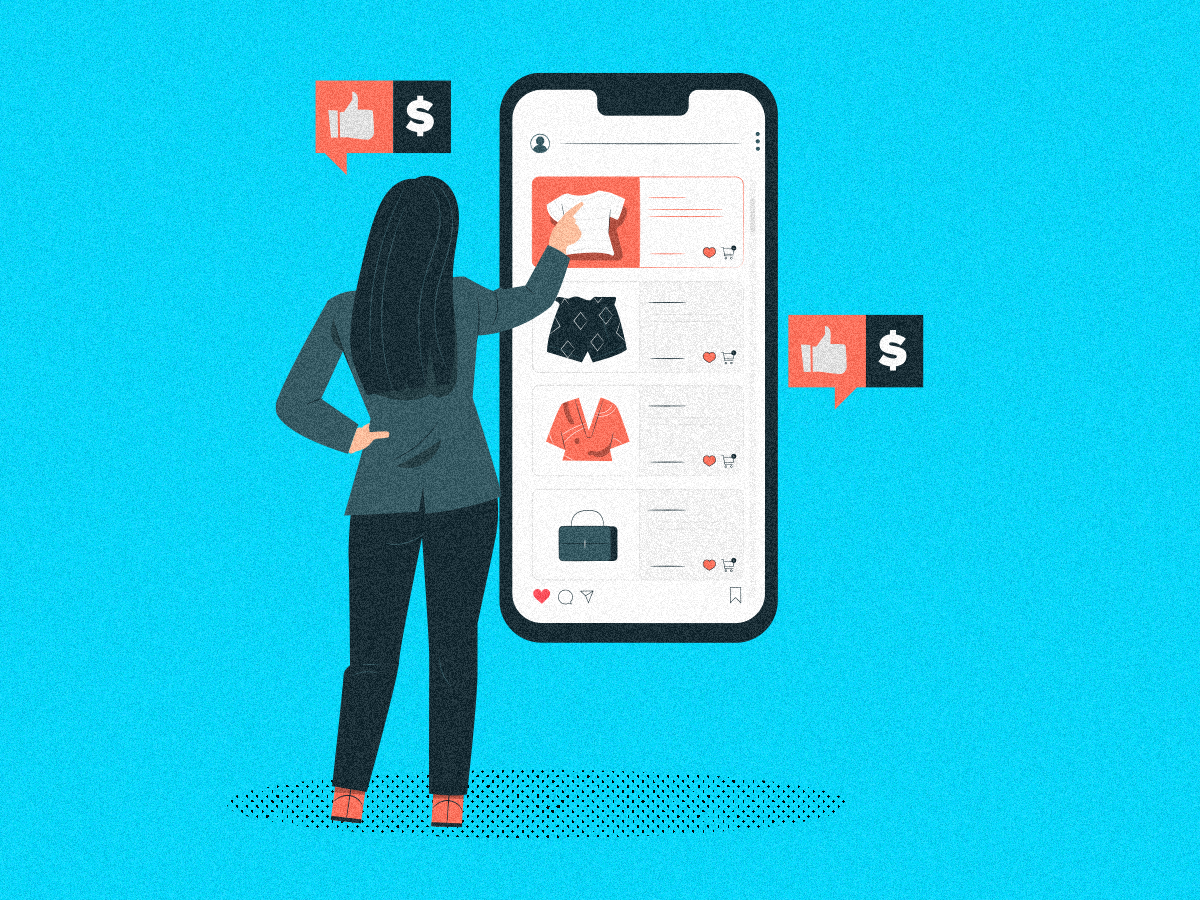Top 10 Best Social Commerce Companies in Europe 2023
Top 10 Best Social Commerce Companies in Europe 2023

Social commerce is a type of e-commerce that involves the integration of social media platforms with online shopping experiences. With the rise of social media, it has become increasingly popular among retailers to leverage social networks as a way to connect with customers, build brand awareness, and generate sales. Social commerce is a fast-growing market in Europe.

here are the top 10 best social commerce companies in Europe in 2023:
Zalando:
Zalando is a German-based e-commerce company that specializes in fashion and lifestyle products. The company has successfully integrated social commerce into its platform by enabling customers to browse and shop for products using social media influencers’ curated collections. In addition, Zalando has implemented a “Shop the Look” feature that allows users to purchase products featured in photos on Instagram.
Zalando is a leading online fashion and lifestyle platform in Europe, headquartered in Berlin, Germany. It was founded in 2008 by Robert Gentz and David Schneider and has since become one of the largest online fashion retailers in Europe.
The company offers a broad range of fashion and lifestyle products for men, women, and children, as well as beauty products and home accessories. Zalando operates in 17 markets across Europe and has over 38 million active customers.
Zalando’s success is driven by its focus on customer experience and convenience. The company offers free shipping and returns, a wide range of products from over 4,000 brands, and a personalized shopping experience through its data-driven recommendations and styling services. Zalando has also invested heavily in technology and innovation, such as its proprietary algorithms for product recommendations and its use of augmented reality for virtual try-on.

In addition to its online platform, Zalando has also established a presence in the physical retail space through its Connected Retail program. This program allows brick-and-mortar retailers to sell their products through Zalando’s platform, providing them with access to a larger customer base and more advanced technological tools.
Zalando has also made sustainability a key focus of its operations, with a goal of becoming a net-zero carbon emissions company by 2025. The company has implemented a number of initiatives to reduce its environmental impacts, such as its use of renewable energy sources and its efforts to reduce waste in its supply chain.
Overall, Zalando’s focus on customer experience, technological innovation, and sustainability has positioned it as a leader in the social commerce space in Europe.
ASOS:
ASOS is a UK-based online fashion and beauty retailer that has made social commerce a core part of its business strategy. The company leverages social media platforms like Instagram and TikTok to showcase new collections and trends, drive engagement, and ultimately drive sales.
ASOS is a British online fashion and cosmetic retailer that sells over 85,000 products from more than 800 brands. It was founded in 2000 and has since grown to become one of the largest online retailers in the UK, with a strong presence in Europe, North America, and Australia. ASOS has become popular due to its focus on fast fashion, with a range of clothing and accessories for men and women, including a plus-size range, maternity wear, and eco-friendly options.
In recent years, ASOS has also started to incorporate social commerce features into its platform, such as allowing customers to share their outfits on social media and tag the products they are wearing. This has helped to increase engagement with the ASOS brand on social media and has also made it easier for customers to discover and purchase products that they see on social media.
ASOS has also experimented with new social commerce features such as “See My Fit,” which uses augmented reality to allow customers to see what clothing items will look like on their body shape. This has helped to improve the accuracy of sizing information, which can be a major issue for online retailers.
In addition to its online presence, ASOS has also opened several physical stores in Europe, including a flagship store in London. These stores allow customers to try on clothing and accessories before purchasing, and also provide a space for in-person events and experiences.
Overall, ASOS’s focus on fast fashion and innovative social commerce features has helped it to become one of the top social commerce companies in Europe. Its strong online presence and growing physical retail presence make it a popular choice for fashion-forward customers who are looking for a convenient and engaging shopping experience.
Farfetch: Farfetch is a luxury fashion marketplace that connects high-end fashion brands with customers through its online platform. The company uses social commerce to engage with customers and build brand awareness through social media platforms like Instagram and Facebook.

Farfetch is a London-based online luxury fashion retailer that offers designer clothing, shoes, bags, and accessories for men and women. The company was founded in 2007 by Portuguese entrepreneur José Neves and has since grown to become a global platform with over 3,000 luxury fashion brands available to customers in more than 190 countries.
Farfetch operates on a marketplace model, connecting customers with a network of over 1,300 boutiques and luxury brands around the world. The company’s website and app offer a seamless shopping experience, allowing customers to browse and purchase products from multiple retailers in one place. In addition, Farfetch has developed an augmented retail platform that enables physical stores to offer a range of digital experiences, including personalization and real-time inventory management.
One of the key strengths of Farfetch is its focus on the luxury market. The company has established relationships with some of the world’s most prestigious fashion brands, including Gucci, Prada, and Balenciaga. Farfetch has also made strategic acquisitions, such as its 2018 purchase of Stadium Goods, a sneaker and streetwear reseller, which has helped the company expand its reach into new categories and demographics.
Farfetch’s social commerce strategy centers on leveraging its vast network of boutiques and brands to create a unique and engaging shopping experience for customers. The company has invested heavily in technology to enhance its platform, including artificial intelligence and machine learning tools that personalize recommendations and improve the overall shopping experience.
In addition, Farfetch has launched a number of social media initiatives aimed at driving engagement and sales. For example, the company has partnered with Instagram on a number of occasions to offer exclusive shopping experiences to its followers. Farfetch has also launched its own social media channels, such as the Farfetch Discover platform, which showcases editorial content and products from its network of brands and boutiques.
Overall, Farfetch’s unique position in the luxury fashion market and its focus on innovation and technology make it a strong player in the social commerce space. The company’s ability to connect customers with a wide range of brands and offer a seamless shopping experience has helped it build a loyal customer base and establish itself as a leader in the industry.
Depop:
Depop is a UK-based social shopping app that has become popular among millennials and Gen Z. The app allows users to buy and sell vintage and second-hand clothing and has a strong social commerce component that enables users to discover new products through curated collections and influencer collaborations.
Depop is a social shopping app and website that enables individuals to buy and sell second-hand or unique items. It was founded in 2011 and is based in London, UK. Depop focuses on a more sustainable and ethical approach to shopping by encouraging second-hand sales and promoting sustainable fashion. The platform offers a diverse range of clothing items, including vintage, designer, and one-of-a-kind pieces.
Depop has over 30 million registered users in more than 150 countries, with a majority of users being under the age of 26. The app has a user-friendly interface that is simple and easy to navigate, making it an ideal platform for young people to buy and sell unique items. Depop’s business model revolves around taking a 10% commission on every sale, which is lower than many other online marketplaces.
One of the unique features of Depop is its social media integration. Users can follow other users and like and comment on their listings. This creates a community feel, and users can interact with each other, share fashion tips and inspiration, and even form relationships with their favorite sellers. Depop also offers seller protection to ensure that both buyers and sellers have a positive experience on the platform.
Depop has gained popularity in recent years, particularly among young people who are interested in sustainable fashion and want to support small businesses. The company has also been praised for its inclusive approach to fashion, offering a platform for diverse voices and promoting body positivity.
In 2021, Depop was acquired by Etsy, a global marketplace for handmade and vintage items. The acquisition will allow Depop to leverage Etsy’s resources and expertise to continue to grow and expand its offerings
Etsy:
Etsy is an online marketplace that specializes in handmade and vintage items. The company has integrated social commerce features into its platform that allows sellers to promote their products on social media, and buyers to discover new products through social sharing and recommendations.
Etsy is an American e-commerce website focused on handmade, vintage, and unique items. It was founded in 2005 and has since become a popular platform for small businesses and individual creators to sell their handmade or vintage items online. Etsy’s platform includes over 2.8 million active sellers who offer a wide range of products, including jewelry, clothing, art, home decor, and craft supplies.
Etsy operates on a commission-based model, charging sellers a fee for each item sold on the platform. In addition to offering a marketplace for sellers, Etsy also provides tools and resources for them to manage their online businesses. This includes features such as customizable storefronts, shipping and payment processing, and analytics and reporting.
Etsy’s commitment to sustainability and social responsibility is an important aspect of its brand. The company has implemented several initiatives to reduce its environmental impact, including sourcing renewable energy, reducing waste, and supporting sustainable manufacturing practices. In addition, Etsy has also taken steps to support social causes such as gender equality, diversity, and inclusion.
In recent years, Etsy has expanded its offerings beyond handmade and vintage items to include mass-produced goods from select sellers. The move has sparked controversy among some sellers who fear that it will dilute the platform’s focus on unique, artisanal products. However, the company has maintained that it will continue to prioritize handmade and vintage items.
Etsy’s success has inspired other social commerce platforms to emerge, but its focus on unique, handmade, and vintage items has set it apart from its competitors. Its commitment to sustainability and social responsibility has also helped to position it as a leader in the industry.
Overall, Etsy’s platform has provided a valuable outlet for small businesses and individual creators to showcase their talents and reach a wider audience. Its focus on handmade and vintage items has helped to promote sustainable and ethical manufacturing practices, while its commitment to social responsibility has made it a popular choice for socially-conscious consumers. As Etsy continues to expand its offerings and support its community of sellers, it will likely remain a prominent player in the social commerce space.

Vinted:
Vinted is a Lithuanian-based online marketplace that specializes in second-hand clothing. The company has a strong social commerce component that enables users to browse and shop for products through curated collections and personalized recommendations.
Vinted is a Lithuanian online marketplace for second-hand clothing, footwear, and accessories. It was founded in 2008 by Milda Mitkute and Justas Janauskas and has since become one of the largest online marketplaces for pre-owned fashion items in Europe.
Vinted is a peer-to-peer platform, which means that users can both buy and sell items. The company’s mission is to promote sustainable fashion by making it easy and affordable for people to buy and sell second-hand items. Vinted provides a simple and user-friendly platform where sellers can list their items for sale and buyers can browse and purchase items.
SocialBee: SocialBee is a UK-based social media management platform that helps businesses automate and optimize their social media marketing efforts. The company offers a suite of tools that enable businesses to create, schedule, and publish social media content, as well as engage with their audiences and track performance.

SocialBee is a social media management tool that allows businesses and individuals to manage their social media presence across various platforms such as Facebook, Twitter, Instagram, LinkedIn, and more. With SocialBee, users can schedule posts, analyze their performance, and engage with their audience all from one platform.
SocialBee offers a variety of features to help users improve their social media management. One key feature is the ability to schedule posts in advance, which can save time and ensure consistent posting. The platform also offers a content calendar, which helps users organize their content and stay on top of their posting schedule.
Another useful feature is the ability to curate content from other sources. Users can find relevant content from blogs, news sites, and other sources, and share it with their audience. SocialBee also offers a library of pre-written social media posts that users can customize and use as inspiration for their own content.
In addition to these features, SocialBee offers detailed analytics that help users track their social media performance. Users can track follower growth, engagement rates, and other key metrics to see how their social media efforts are impacting their business.
Overall, SocialBee is a powerful tool for anyone looking to improve their social media management. With its scheduling, content curation, and analytics features, SocialBee can help businesses and individuals save time, increase engagement, and grow their social media presence.
Revolve: Revolve is a US-based online fashion retailer that has successfully integrated social commerce into its platform. The company leverages social media influencers to promote its products and uses platforms like Instagram and Snapchat to drive engagement and generate sales.
Revolve is a popular online fashion retailer that focuses on designer clothing and accessories for women and men. Founded in 2003, the company is headquartered in Cerritos, California, and has quickly become one of the largest e-commerce platforms for fashion in the United States. Revolve offers a wide variety of products from hundreds of designer brands, including clothing, shoes, bags, and accessories.
Revolve’s success is largely due to its ability to curate a selection of products that cater to the preferences of its target audience, which is largely comprised of fashion-forward millennials. The company is also known for its innovative marketing strategies, such as using social media influencers to promote its products and events and hosting pop-up shops in major cities around the world.
One of the key features of Revolve’s business model is its use of data analytics to optimize its product offerings and marketing campaigns. The company collects and analyzes vast amounts of customer data, such as browsing and purchasing history, social media engagement, and demographic information, to gain insights into customer preferences and behavior. This allows Revolve to tailor its products and marketing efforts to the specific needs and interests of its target audience.
Another notable aspect of Revolve’s business model is its focus on sustainability and ethical practices. The company has implemented a number of initiatives to reduce its environmental impact, such as using eco-friendly packaging materials and partnering with vendors who use sustainable production methods. Revolve also has a program called “Revolve for Good” which donates a portion of its profits to charitable causes.

Joom:
Joom is an online marketplace that specializes in affordable products from China. The company has a strong social commerce component that enables users to discover and purchase products through social sharing and personalized recommendations.
Joom is an e-commerce platform that was founded in 2016 in Latvia. It is a mobile-focused marketplace that enables individuals and businesses to buy and sell products worldwide. The platform offers a wide range of products, including clothing, accessories, electronics, home and garden products, and more. It is available in more than 150 countries and has over 250 million registered users.
One of the key features of Joom is its AI-powered recommendation system, which helps users discover new products based on their previous purchases and browsing behavior. The platform also offers free shipping on many items and a buyer protection policy that guarantees refunds if products are not received or do not match the description.
Joom has been successful in attracting customers due to its affordable pricing, wide range of products, and user-friendly interface. The platform has also been praised for its fast and reliable shipping, with many customers receiving their orders within a week.
In addition to its e-commerce marketplace, Joom has also launched JoomPay, a payment platform that allows users to send and receive money directly from the Joom app. JoomPay is currently available in several European countries and is expected to expand to more regions in the future.
Fy!:
Fy! is a UK-based online marketplace that specializes in curated collections of unique and affordable home decor products. The company has successfully integrated social commerce into its platform by enabling users to discover and purchase products through social sharing and personalized recommendations.
Fy is a social commerce company based in the UK that offers a curated selection of fashion and lifestyle products from independent designers and brands around the world. Fy’s platform is designed to connect consumers with unique and trendy products that are not commonly found in traditional retail stores.
The company was founded in 2014 by Tom Adeyoola and Alex Murray and has since raised over $13 million in funding from various investors. Fy’s business model is based on a commission-based revenue model, where it takes a percentage of each sale made through its platform.
Fy’s platform features a wide range of products, including clothing, accessories, home decor, and tech gadgets. Customers can browse products by category, brand, or trend, and can also follow their favorite designers and brands to stay up-to-date on new products and promotions. Fy’s social commerce features include user-generated content, such as product reviews and social media posts, as well as a personalized shopping experience based on customer preferences and purchase history.
One of Fy’s unique features is its “dropshipping” model, where the company partners with independent designers and brands to source products on demand, rather than holding inventory. This allows Fy to offer a wide range of products without the overhead costs of managing inventory and warehousing.
Fy has received positive reviews for its unique and trendy product selection, as well as its user-friendly platform and personalized shopping experience. The company has also been recognized for its commitment to supporting independent designers and brands, and for promoting sustainable and ethical practices in the fashion industry.
Overall, Fy is a social commerce company that offers a unique and personalized shopping experience for customers looking for trendy and unique products from independent designers and brands. With its innovative business model and commitment to sustainability and ethical practices, Fy is well-positioned to continue its growth in the social commerce market in Europe and beyond.
In conclusion, social commerce is becoming an increasingly important aspect of e-commerce in Europe, and these top 10 companies are leading the way in leveraging social media platforms to drive engagement, build brand awareness, and generate sales. As social media continues to evolve and new platforms emerge, it is likely that social commerce will become an even more important part of the e-commerce landscape in Europe and beyond.





